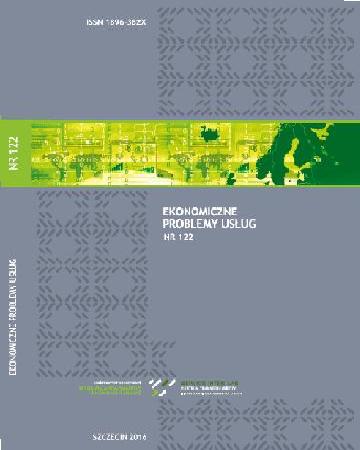
ISSN: 1896-382X
eISSN: 2353-2866
OAI
DOI: 10.18276/epu.2017.126/1-03



Issue archive /
nr 126 (1) 2017
Role of the sharing economy in the contemporary economy
| Authors: |
Agnieszka
Budziewicz-Guźlecka
University of Szczecin Faculty of Management and Economics of Services Department of Economic Policy and Social Economy |
| Keywords: | sharing economy collaborative economy prosumer ICT |
| Data publikacji całości: | 2017 |
| Page range: | 10 (27-36) |
Abstract
The article presents the essence and role of the sharing economy. Sharing economy owe its rapid development in recent years, the fast development of technologies like social communications, mobile technologies and portals supporting direct cooperation of people. The article presents the role of youth as current and future prosumers in sharing economy. The generation that is currently growing up surrounded by so widely and rapidly developing techniques and technologies of information transfer will be a very aware prosumer on the market.
Download file
Article file
Bibliography
| 1. | Botsman (2013). Retrieved from: https://www.fastcoexist.com/3022028/the-sharing-economy-lacks-a-shared-definition. |
| 2. | Drab-Kurowska, A. (2010). Poziom technologii informatycznych w przedsiębiorstwach woje-wództwa zachodniopomorskiego. Zeszyty Naukowe Uniwersytetu Szczecińskiego. Ekono¬miczne Problemy Usług, 5711, 153-160. |
| 3. | Hern, A. (2015). Why the term Sharing economyfńeeds to die. Retrieved from: https://www.the |
| 4. | guardian.com/technology/2015/oct/05/why-the-term-sharing-economy-needs-to-die. https://www.parp.gov.pl/images/P ARP _publications/pdf/22522.pdf, p. 115. http://www.pwc.pl/pl/pdf/technologie-mobilne-raport-pwc. pelf, p. 49. |
| 5. | Communication of the Commission to the European Parliament, Council, European Economic and Social Committee and the Committee of Regions. European progranune for the shar¬ing economy, Brussels, 2.6.2016. COM(2016) 356 final. |
| 6. | Communication of the Commission to the European Parliament, Council, European Economic and Social Committee and the Committee of Regions of 6 May 2015. https://mac.gov.pl/files/komunikat_ komisji_ europejskiej_ strategia jednolitego_ rynku_ c yfrowego.pdf. |
| 7. | Szul, E. (2013). Prosumpcja jako aktywność współczesnych konsumentów - uwarunkowania i przejawy. Nierówności społeczne a wzrost gospodarczy, 31, 347-358. |
| 8. | Tapscott, D., Williams, A.D. (2008). Wikinomia. O globalnej współpracy, która wszystko zmienia. |
| 9. | Warszawa: Wydawnictwa Akademickie i Profesjonalne. |
| 10. | Toffler, A. (1997). Trzecia fala. Warszawa: PIW. |
| 11. | Wardzała, J. (2013). Młodzi konsumenci wobec nowych mediów - racjonalne zakupy czy fascy¬nacja technologią? Forum Socjologiczne, 4. |
| 12. | Wardzała, J. (2015). Zmiany w postrzeganiu roli młodzieży we współczesnym społeczeństwie konsumpcyjnym, Konsumpcja jako forma komunikacji społecznej. Nowe paradygmaty i konteksty badawcze, Prace Naukowe UE, 414. |
| 13. | Zgiep, Ł. Sharing economy jako ekonomia przyszłości. Retrieved from: |
| 14. | http ://www.lazarski.pl/fileadmin/user _upload/dokumenty I czasopisma/mysl-ekonomiczna-polityczna/2014/MEiP _ 4_9 _2014_Zgiep.pdf. |